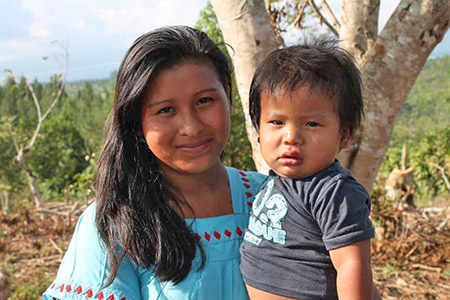MIGRATION
We live in a world on the move. Today, roughly 244 million people live outside their country of origin. Some have migrated in search of better opportunities. Others flee from crises imposed by conflict or disasters, or from abject poverty. For many, leaving one country for another is a complex process fraught with risks and insecurities. While migration is not a new phenomenon, the sheer scale of forced and irregular migration in recent years has called attention to the need for stronger international cooperation to better address the root causes of displacement and to promote durable solutions towards safe, orderly and regular migration.
ADDRESSING THE ROOT CAUSES OF FORCED AND IRREGULAR MIGRATION
Recognizing that multiple factors can give rise to migratory flows – from conflict, to disasters and deprivation – human security aims to proactively and comprehensively address these conditions before they reach a crisis level and result in large-scale movements of people. As such, a focus on human security draws attention to the importance of early warning and early action, and emphasizes inclusive and sustainable development to create conditions in which migration is a choice rather than a necessity.
PROTECTING AND EMPOWERING REFUGEE, MIGRANT AND HOST COMMUNITIES
Large movements of refugees and migrants have consequences across and within countries, requiring responses that consider the social, political, economic, and environmental challenges faced by ‘people on the move’, as well as their host communities. By combining institutional strategies with community based solutions, human security draws attention to gaps in the management of migration and aims to strengthen mechanisms that lead to productive outcomes for all. It promotes multi-sectoral responses that address the totality of conditions faced by refugees, migrants and their host communities and places emphasis on strengthening social harmony, promoting innovation, and building resilience towards greater dignity and mutual respect.
APPLYING HUMAN SECURITY TO DISPLACEMENT AND MIGRATION
The UNTFHS has extensive experience in addressing the challenges faced by refugees, migrants and host communities. Programme examples include multi-stakeholder support to refugees and host communities in Gabon, Lebanon and Liberia; reintegration of IDPs and returnees in Uganda, Colombia, Egypt, Sri Lanka, and Somalia; assistance to temporary migrants in Costa Rica, Panama and Thailand; addressing the situation of stateless people in the Dominican Republic; promoting safe and orderly transit of migrants in Mexico; and protecting victims of human trafficking in Indonesia and Moldova.
Highlighted Story
Joint Program to Improve the Human Security of Ngäbe and Buglé Temporary Migrants in Costa Rica and Panama

Elida with her son Pablo, who was born on a remote coffee plantation in Costa Rica. UNHCR/M. Rodriguez-Farrelly
Indigenous Ngäbe and Buglé populations of western Panama face complex set of challenges, including widespread poverty, limited economic opportunities, inadequate access to basic services, and intermittent floods and droughts. Mobile and in search of seasonal employment, they often migrate between Panama and Costa Rica, undocumented and without protection. To reduce their vulnerability and to build their resilience, the UNTFHS programme, in partnership with local and national authorities, developed an effective cross-border strategy to address the underlying drivers of migration from Panama, while simultaneously providing essential services along the migratory route and enhancing temporary labour protections in Costa Rica.
